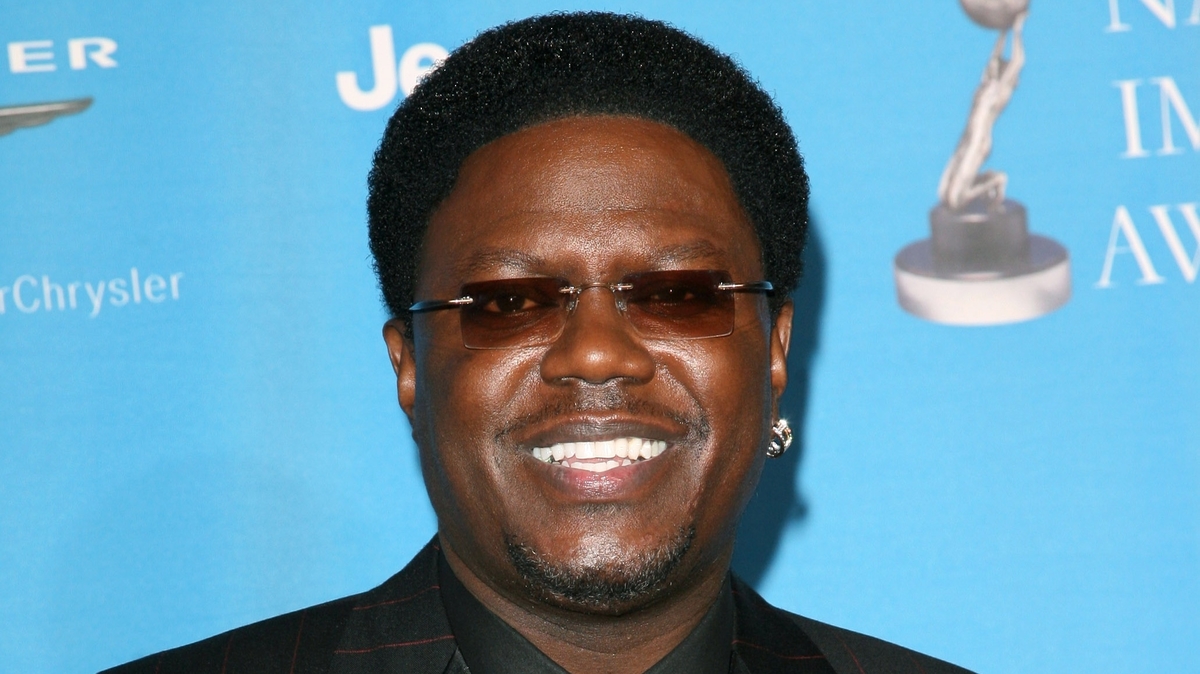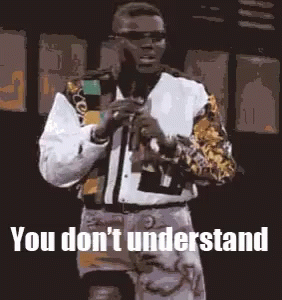Bernie Mac’s comedic genius and legacy continues to endure, 12 years after his 2008 passing due to sarcoidosis complications. The anniversary of his death, August 9, prompted online tributes from former colleagues and fans. And while it’s obvious that his career, which spanned over three decades, was filled with highlights, it may not be as apparent how revolutionary his work was and how his thumbprint has been on generations since.
More specifically, Bernie Mac truly impacted the narrative around Black men and fatherhood. Despite some of his problematic jokes that would make anyone clutch their pearls by today’s standards, he somehow managed to transcend audiences and thrive in mainstream America. Who would’ve thought? In honor of the cultural icon, who is Bernie Mac, here are five ways this king of comedy influenced the culture.
1. He showed Black men how to move fearlessly with his indomitable spirit.
Anyone who grew up in or around the 90s may remember Def Comedy Jam, just one spin-off from then reputable entrepreneur Russel Simmons’ Def Jam Entertainment umbrella. I remember how it was mostly forbidden to watch, as the content wasn’t what most would call PG-13. Of course, that means we watched it anyway. The main difference between the show and others of that era was the crowd.
The Def Comedy Jam crowd was relentless and blood thirsty, waiting for their next victim as a young Martin Lawrence tried to appease them between acts. Should you bomb, there was no sandman (like at the Apollo) to save you. You just had to stand there and take your L.
Bernie Mac’s Def Comedy appearance has become one of the most iconic sets in the show’s history and coined one of his trademark phrases, “I ain’t scared of you muthaf****as.” The audience that night was particularly moody, booing and clowning everyone including the act before Mac. Legend has it that Bill Bellamy was backstage with Mac when he told him to “be careful” with the unruly audience because the taping was known to be a big opportunity for upcoming comics. Mac told him, “I’ve been going at this too long — I’ve worked too hard — I ain’t scared of ‘em!”
I feel like most people don't know the backstory to this either. Pretty cool story: https://t.co/AXywVzY6ys
— Henry Johnson (@TalktoHenryJ) August 9, 2020
2. He helped sustain the popularity of raunchy relatable comedy.
Mac’s Def Jam appearance is a forward glimpse into the power of his charisma and influence even with material that was unapproachable to many. Mac didn’t just do a set about explicit and grown material. He talked about grown material in the context of his wife, job and everyday things that anyone and everyone could relate to.
3. He showed the multi-dimensions of Black men with his diverse cameos.
Mac’s bits ranged from his sexual prowess to observations as a husband and father. Black comedians doing explicit — or “blue”— comedy was a dime a dozen. For that reason, many a career was relegated to only that decade and usually in “urban” films. Mac’s portfolio, on the other hand, not only spanned three decades but included cameos and features so diverse that if you didn’t know him before it would be hard to guess his genre of comedy. From cultural classics like Friday, to cult classics like Players Club, to blockbuster films like Bad Santa, Life and Oceans 11; Bernie Mac’s unique comedic thumbprint was essential to their production.
This is still one of my favorite scenes ever. This movie "Life" had nothing but legends and Bernie Mac still steals the scene. "A Lotta people say it tho" ???? RIP Bernie Mac pic.twitter.com/OWLTBBVocM
— UnhealthyVegan (@UnhealthyVegan_) August 9, 2020
#RestInPeace Bernie Mac
His performance in Bad Santa ????with John Ritter(RIP) is still one of my favorites. pic.twitter.com/CFyvgbqtnr
— ❖ Andrea ❖ (@MyFavGhost) August 10, 2020
4. He presented a new way to look at Black fathers.
Back when he was on stage talking about how “big boned” he was no one could imagine that his most popular vehicle, The Bernie Mac Show, would be a unique and hilarious look into Black fatherhood.
In another iconic stand-up, infamously known as the “milk and cookies” bit, Mac weaves a story about adopting kids from a drug addled relative. In real life, he took in his teenage niece and her child. He melded his bit and real life experience that showcased The Bernie Mac Show as an unsung beacon of Black male fatherhood. Black fathers on TV have never been unusual but this brand of fatherhood, the image of a Black man raising children that weren’t biologically his, was actually groundbreaking.
One of my favorite episodes and moments in The Bernie Mac Show ???????????????????? pic.twitter.com/HT3pR2RC8g
— ????????♀️AsTᴏʟᴅBʏSʜᴀɴɴᴏɴ???? (@Queen_Martian) August 10, 2020
5. He showed that Black men could be themselves, unapologetically.
In an inspiring 2002 interview with Oprah, one where she takes her shoes off to get more comfortable, she asked Bernie Mac, “What was your ultimate goal? What did you want to do?”
Mac replied, while holding his heart, “To be the best, within myself. I’m not in competition with anybody.”
Mac went on to say that he was never concerned about money; and staying true to himself without allowing his on stage persona to dictate his personal and familial relationships was one of his greatest achievements.
In a separate standout moment, Mac was featured in a 2008 fundraiser for then presidential hopeful Barack Obama. He performed an unapologetic stand-up, as a Chicago legend in Chicago.
"My little nephew came to me and he said, 'Uncle, what's the difference between a hypothetical question and a realistic question?"' Mac countered, "I said, I don't know, but I said, 'Go upstairs and ask your mother if she'd make love to the mailman for $50,000."'
3 Things To Keep In Mind From Bernie Mac's Sit Down With @Oprah ????
• Stay In YOUR Lane
• Be The Best Within YOURSELF
• FOCUS On Being The Best Within Yourself & Everything Else Will Come pic.twitter.com/vSN2CMuNlN— DJ First Class™ ???? (@1DJFirstClass) January 21, 2019
He also instructs his nephew to go ask his sister if she’d make love to the neighbor for $50,000, to which the sister also says she would.
"Hypothetically speaking, we should have $100,000. But realistically speaking we live with two hos," Mac quipped, delivering the punch line.
Obama’s camp rebuked the joke, but Mac didn’t apologize. He came there to support a Black nominee while doing his jokes, in his city, for his presidential candidate. Full stop.
Bernie Mac is the only Original King of Comedy who is no longer with us. Yet, he is an OG in the Black comedy arena whose art continues to not only influence the Black culture but inspires outsiders so drawn by his conviction, they become Bernie Mac disciples.
Long live the King.

